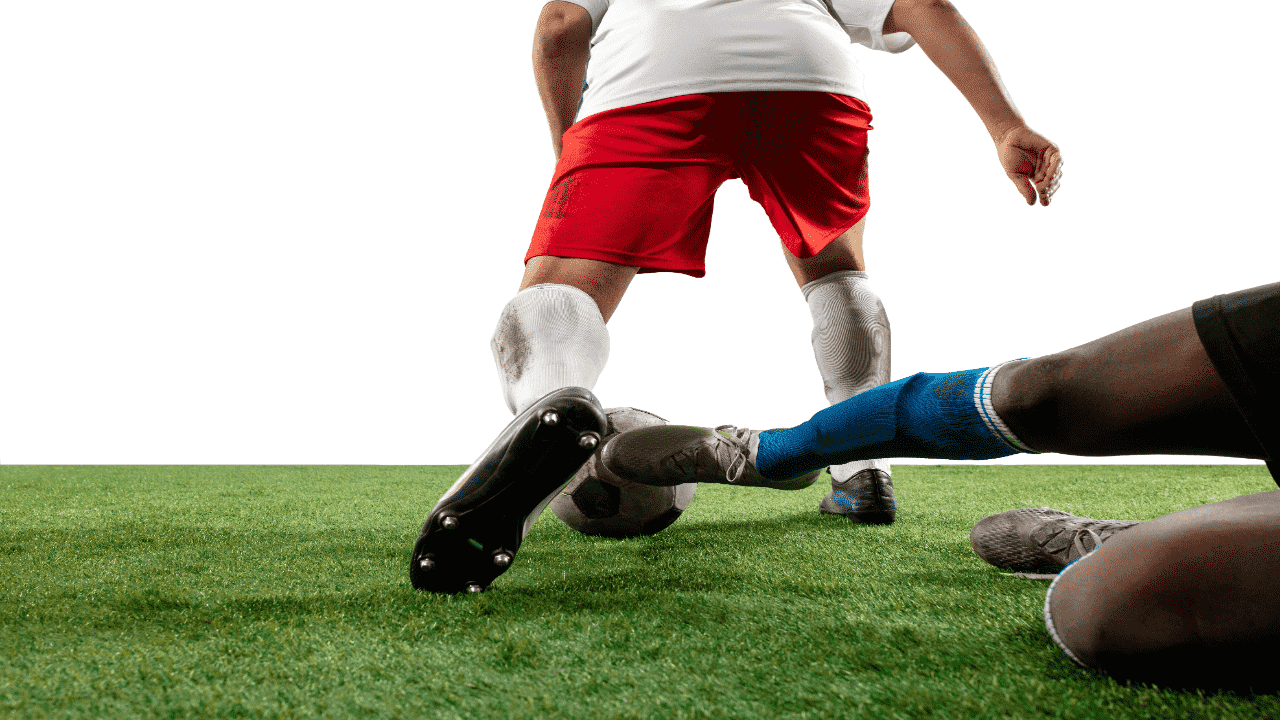Intro
A. Importance of coaching in youth sports Coaching is crucial in youth sports as it shapes young athletes’ experiences and development. Good coaches help instill a love for the sport, promote healthy growth, and teach essential life skills such as discipline, teamwork, and resilience.
B. Impact of effective coaching on young athletes Effective coaching enhances performance, boosts self-esteem, and increases enjoyment in the sport. It aids young athletes in improving their skills, gaining a better understanding of the game, and staying motivated and committed.
C. Overview of key best practices To be effective, coaches should understand the developmental stages and individual differences of young athletes, create a positive and supportive environment, use clear and effective communication strategies, teach fundamental skills, promote physical and mental well-being, motivate athletes, engage parents and guardians, and continually seek to improve their coaching skills.
Understanding Young Athletes
A. Developmental stages of young athletes
Understanding the developmental stages of young athletes is vital for effective coaching. Physical development varies significantly across age groups, so it is important to tailor training to match their growth. Cognitive development also influences how young athletes learn and understand game strategies, so clear and simple instructions are essential. Emotional development impacts their ability to handle competition and setbacks, so fostering emotional resilience is crucial.
B. Recognizing individual differences
Every athlete is unique, with different skill levels, learning styles, and motivations. Recognizing these individual differences helps coaches tailor their approach to each athlete’s needs. Understanding an athlete’s current skill level ensures appropriate training and support. Adapting teaching methods to match diverse learning styles can enhance understanding and skill acquisition. Additionally, identifying what motivates each athlete—whether it’s fun, competition, or personal growth—helps keep them engaged and driven.
Building a Positive Environment
A. Creating a supportive and inclusive atmosphere
Creating a supportive and inclusive atmosphere is key to fostering a positive experience for young athletes. A welcoming environment encourages participation and makes everyone feel valued, regardless of their skill level or background. Coaches should promote respect and empathy among athletes to build a sense of community.
B. Encouraging teamwork and sportsmanship
Promoting teamwork and sportsmanship helps athletes learn the value of cooperation and fair play. Activities and exercises that emphasize collaboration and respect for others can strengthen team bonds and enhance the overall sports experience.
C. Setting realistic and achievable goals
Setting realistic and achievable goals helps maintain athletes’ motivation and provides clear benchmarks for success. Goals should be specific, measurable, and tailored to each athlete’s abilities, ensuring they are challenging yet attainable.
D. Providing constructive feedback
Providing constructive feedback is essential for improvement and confidence building. Feedback should be specific and aimed at helping athletes understand what they can do to enhance their skills. Positive reinforcement, combined with constructive criticism, supports a healthy development and fosters a positive attitude towards learning and improvement.
Effective Communication Strategies
A. Listening actively to athletes
Active listening is crucial in building trust and open communication with young athletes. By paying close attention to their thoughts, concerns, and ideas, coaches can better understand their needs and provide appropriate support and guidance.
B. Clear and concise instruction
Providing clear and concise instructions helps athletes understand what is expected of them. Simple, direct language and avoiding jargon ensures that instructions are easy to follow, which is essential for effective learning and skill development.
C. Positive reinforcement
Using positive reinforcement encourages athletes to continue working hard and to stay motivated. Recognizing effort and progress with praise or small rewards helps build confidence and a positive attitude towards the sport.
D. Handling conflicts and misunderstandings
Addressing conflicts and misunderstandings promptly and fairly is important for maintaining a positive team environment. Coaches should approach conflicts with empathy and clarity, helping athletes resolve issues amicably and fostering a sense of respect and understanding among team members.
Teaching Fundamental Skills
A. Emphasizing basics and fundamentals
Focusing on basic skills is crucial for young athletes, as these form the foundation for more advanced techniques. Coaches should ensure that fundamental skills are thoroughly taught and mastered before progressing to more complex aspects of the sport.
B. Progressive skill development
Skill development should be approached in a progressive manner, starting with simple tasks and gradually increasing in complexity. This approach helps athletes build confidence and competence step by step, ensuring a solid understanding and ability in the sport.
C. Incorporating fun into learning
Incorporating fun into practice sessions keeps young athletes engaged and motivated. Creative drills, games, and activities can make learning new skills enjoyable, enhancing both participation and skill retention.
D. Balancing practice and play
Balancing practice with play is important for maintaining interest and preventing burnout. Coaches should ensure that while skill development is a priority, there is also ample time for free play and enjoyment, which are vital for overall development and love for the sport.
Promoting Physical and Mental Well-being
A. Ensuring safety and injury prevention
Safety is a top priority in youth sports. Coaches should implement proper training techniques, ensure that equipment is suitable and well-maintained, and educate athletes on safety practices to minimize the risk of injuries. Regular assessments and adherence to safety guidelines are essential.
B. Importance of proper nutrition and hydration
Proper nutrition and hydration are vital for young athletes’ performance and overall health. Coaches should educate athletes on the importance of a balanced diet and adequate fluid intake, and encourage healthy eating habits both before and after training sessions and games.
C. Addressing mental health and stress
Mental health is as important as physical health. Coaches should be attentive to signs of stress, anxiety, or other mental health issues and create an environment where athletes feel comfortable discussing their feelings. Providing support and encouraging a balanced approach to sports and life can help maintain mental well-being.
D. Balancing sports and other life aspects
It is important to balance sports with other aspects of life, such as academics, family time, and hobbies. Coaches should encourage athletes to manage their time effectively and ensure that sports do not interfere with their overall development and well-being.
Motivating Young Athletes
A. Encouraging intrinsic motivation
Fostering intrinsic motivation is key to keeping young athletes engaged and passionate about their sport. Coaches should focus on encouraging personal growth, enjoyment, and the love of the game rather than relying solely on external rewards or pressure.
B. Setting personal and team goals
Setting clear, achievable goals for both individuals and the team can enhance motivation and provide direction. Goals should be specific and tailored to each athlete’s abilities and aspirations, helping them to stay focused and committed.
C. Celebrating progress and achievements
Recognizing and celebrating progress and achievements, both big and small, helps build confidence and keeps athletes motivated. Positive reinforcement and acknowledgment of efforts can boost morale and encourage continued effort and improvement.
D. Maintaining enthusiasm and passion for the sport
Coaches should model enthusiasm and passion for the sport, as their attitude can significantly impact athletes’ motivation. Demonstrating a love for the game and showing excitement about training and competitions can inspire athletes to share that enthusiasm and stay dedicated to their sport.
Engaging Parents and Guardians
A. Communicating effectively with parents
Effective communication with parents is essential for a supportive sports environment. Coaches should keep parents informed about training schedules, team activities, and any important updates. Open lines of communication help build trust and ensure everyone is aligned with the goals and expectations.
B. Involving parents in the athletic process
Involving parents in the athletic process can enhance the support system for young athletes. Coaches can encourage parents to participate in team events, volunteer for activities, and support their children’s efforts in a positive and constructive manner.
C. Managing expectations and pressure
It is important to manage expectations and reduce unnecessary pressure on young athletes. Coaches should work with parents to set realistic goals and emphasize the value of enjoyment, skill development, and personal growth over winning at all costs.
D. Educating parents on best practices
Educating parents about best practices in youth sports, such as the importance of balanced development, the role of sportsmanship, and the benefits of a healthy lifestyle, can help create a supportive and positive environment for athletes. Providing resources and guidance can empower parents to contribute positively to their children’s sports experience.
Continuing Education for Coaches
A. Staying updated with the latest coaching techniques
It is important for coaches to stay informed about the latest coaching techniques and trends. Regularly updating their knowledge and skills helps coaches provide the best possible training and support to young athletes, ensuring that their methods are effective and current.
B. Attending workshops and seminars
Participating in workshops and seminars can enhance a coach’s skills and knowledge. These opportunities provide valuable insights, new strategies, and the chance to learn from experienced coaches, which can be applied to improve coaching practices.
C. Networking with other coaches
Networking with other coaches can be beneficial for sharing ideas, experiences, and best practices. Building a network of professional contacts can provide support, inspiration, and opportunities for collaboration, enhancing a coach’s effectiveness and growth.
D. Reflecting and adapting coaching methods
Regularly reflecting on coaching methods and being open to adapting them is crucial for continuous improvement. Coaches should assess their performance, seek feedback from athletes and peers, and be willing to make changes to better meet the needs of their athletes and improve their coaching approach.
Thanks 4 reading!





